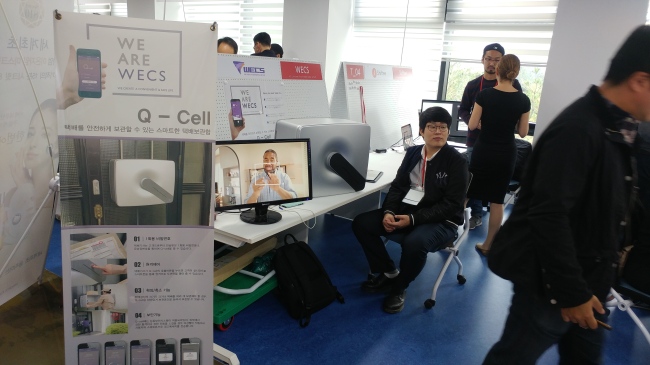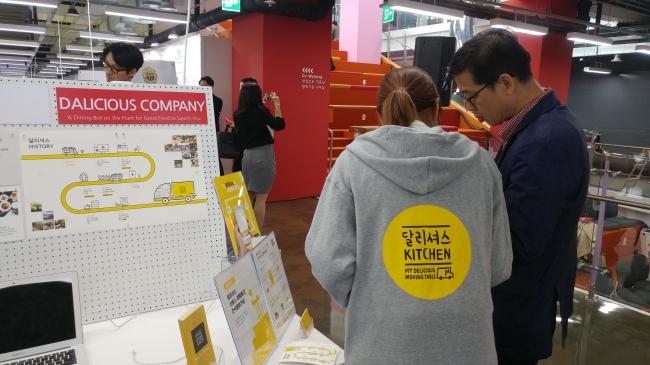[Save the startups] Southeast Asia may be answer for South Korea’s aspiring unicorns
Global investors point to similarities, cultural empathy, liberal business environment, coupled with large demand for high technology
By Bae Hyun-jungPublished : Nov. 9, 2017 - 18:36
The Korea Herald is publishing a series of articles looking into new roles of South Korean startups en route to the “fourth industrial revolution,” as well as their challenges in securing funds, entering the market and staying in it. This is the third installment. -- Ed.
Due to investment challenges and the cutthroat domestic market, South Korean startups tend to underestimate the vast potential of their innovative technology and high-quality human resources, according to Southeast Asian market experts.
“Recently, US unicorn startups (those with corporate values of $1 billion or more) have been paying close attention to the Asian market for profitable investment,” said Yinglan Tan, founding managing partner of Insignia Venture Partners and former partner of Sequoia Capital Asia.
Due to investment challenges and the cutthroat domestic market, South Korean startups tend to underestimate the vast potential of their innovative technology and high-quality human resources, according to Southeast Asian market experts.
“Recently, US unicorn startups (those with corporate values of $1 billion or more) have been paying close attention to the Asian market for profitable investment,” said Yinglan Tan, founding managing partner of Insignia Venture Partners and former partner of Sequoia Capital Asia.

The Singaporean venture capital expert visited Seoul late last month to attend Asia Beat Seoul 2017, a regional exhibition and demonstration day for startups and investors. Since its kick-off in Taiwan in 2014, the Asia Beat initiative has developed into a networking channel for startups and investors in the region. This year’s occasion, held in Seoul’s Startup Hub on Oct. 26-27, was supervised by Shift, a startup accelerator specializing in Southeast Asia.
“Southeast Asia has one of the largest markets but an insufficient population of high-tech engineers, while South Korea is the other way around,” Tan said, contending that the combination of the two would lead to strong business synergy and attract global investment.
It was Tan who, during his years at Sequoia, invested in Indonesia’s online marketplace Tokopedia, which later grew into a leading unicorn company in Southeast Asia. Korea was one of his first destinations after he established his own company and raised a $25 million in a debut fund earlier this year.
“Japan, which has a sufficiently large domestic market, is not as motivated to expand into the overseas startup market,” he said.
“It is South Korea and Taiwan, with their advanced technology and high demand for overseas expansion, that have the highest chance in Southeast Asia.”

He added that patience and sustainability should be key to achieving tangible results in “fourth industrial revolution” sectors, especially in an underdeveloped market with little technical infrastructure.
Market observers here likewise agree that Southeast Asia is fertile ground for technology-driven South Korean startups seeking investment momentum and a larger share of the market.
Advantages of the Southeast Asian market include demographic similarities, cultural empathy and geographic accessibility, as well as the relatively regulation-free business environment, according to Kang Seok-heun, CEO of venture capital firm BonAngels.
“The Southeast Asian states form a unique market for technology-based startups as they have double-digit annual population growth, as well as an unrivaled number of young consumers from their late teens to early 30s,” said Louis Ryu, founder of Shift.
“It is this vast group of young users who will open up to the mobile market and embrace innovative new technology.”
Yoo Jung-ho, investment manager at Korea Investment Partners, explained that the region’s currently underdeveloped financial system and communications infrastructure give startups an opportunity for market domination.

Experts, however, also highlighted that startups need to step beyond boundaries and reach out more actively to potential investors.
“South Korean startups face relatively little difficulty in settling themselves in the domestic market, thanks to the government’s support,” said Tan.
“But when it comes to forming networks with global investors and establishing a foothold in the overseas market, progress is yet to be made.”
While Chinese players currently account for 52 percent of the world’s non-US unicorn companies, only two South Korean firms make the list -- social commerce distributer Coupang and mobile platform operator Yellow Mobile, according to US market researcher CB Insight.
“South Korean startups should be more confident about their highly advanced engineering technology and refined work ethics,” Tan said.
“What they need is to better understand the market operating system and the global investor sentiment.”
By Bae Hyun-jung (tellme@heraldcorp.com">tellme@heraldcorp.com)




![[Herald Interview] 'Amid aging population, Korea to invite more young professionals from overseas'](http://res.heraldm.com/phpwas/restmb_idxmake.php?idx=644&simg=/content/image/2024/04/24/20240424050844_0.jpg&u=20240424200058)











![[KH Explains] Korean shipbuilding stocks rally: Real growth or bubble?](http://res.heraldm.com/phpwas/restmb_idxmake.php?idx=652&simg=/content/image/2024/04/25/20240425050656_0.jpg&u=)

